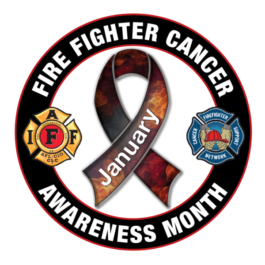January is Firefighter Cancer Awareness Month, and the International Association of Fire Fighters (IAFF) says that cancer is the leading cause of death among firefighters. Annual deaths from various forms of cancer account for more than 74 percent of the line-of-duty deaths added to the IAFF fallen firefighter memorial wall of honor each year.
The National Firefighter Registry program is finalizing its enrollment web portal, a voluntary registry of firefighters that collects occupational, lifestyle, and health information on firefighters to evaluate cancer rates and cancer risk factors in the U.S. fire service. The NFR was created by the Firefighter Cancer Registry Act of 2018 in response to growing evidence of carcinogenic exposures and increased risk for cancer faced by firefighters. The NFR is maintained by the U.S. National Institute for Occupational Safety and Health (NIOSH).
All U.S. firefighters, no matter their length of service, can participate in the Registry, including:
- Active, former, and retired firefighters
- Career, paid-on-call, and volunteer firefighters
- Structural firefighters
- Wildland firefighters
- Industrial firefighters
- Military firefighters
- Instructors
- Fire investigators
- Other fire service members
The Firefighter Cancer Support Network (FCSN) provides public education on the issue of cancer risk for firefighters. For more than 16 years the FCSN has provided support for firefighters and  EMS members who have been diagnosed with cancer. The firefightercancersupport.org website includes information to educate firefighters and raise awareness about why cancer cases are on the rise in the fire service and how to limit day-to-day exposures to carcinogens. Resources are available for firefighters diagnosed with cancer.
EMS members who have been diagnosed with cancer. The firefightercancersupport.org website includes information to educate firefighters and raise awareness about why cancer cases are on the rise in the fire service and how to limit day-to-day exposures to carcinogens. Resources are available for firefighters diagnosed with cancer.
Since 2005, the nonprofit FCSN has provided assistance and one-on-one mentoring to thousands of cancer-stricken firefighters and their families. FCSN also delivers extensive firefighter cancer awareness and prevention training nationwide.

Let’s not forget the generation of us that transported, stored, and used several types of herbicides and pesticides for numerous years to kill beetles and desiccate brush fields. Most of those chemicals are off the market now for obvious reasons!
The FCSN provided me with a mentor during my diagnosis and treatment. I would have been lost without him as I navigated through failed treatments and attempts to achieve remission ultimately requiring a stem cell transplant. They pair you with a mentor who suffered a similar diagnosis. He still checks on me almost 3 years later. He also travels around to different fire stations teaching power points to educate firefighters on health and safety when it comes to the toxic carcinogens we are exposed to. It’s a real bummer the Forest Service doesn’t offer this type of training/education. With presumptive occupation exposures and the push to recognize cancer as an occupational disease I would like to see it offered in the near future.